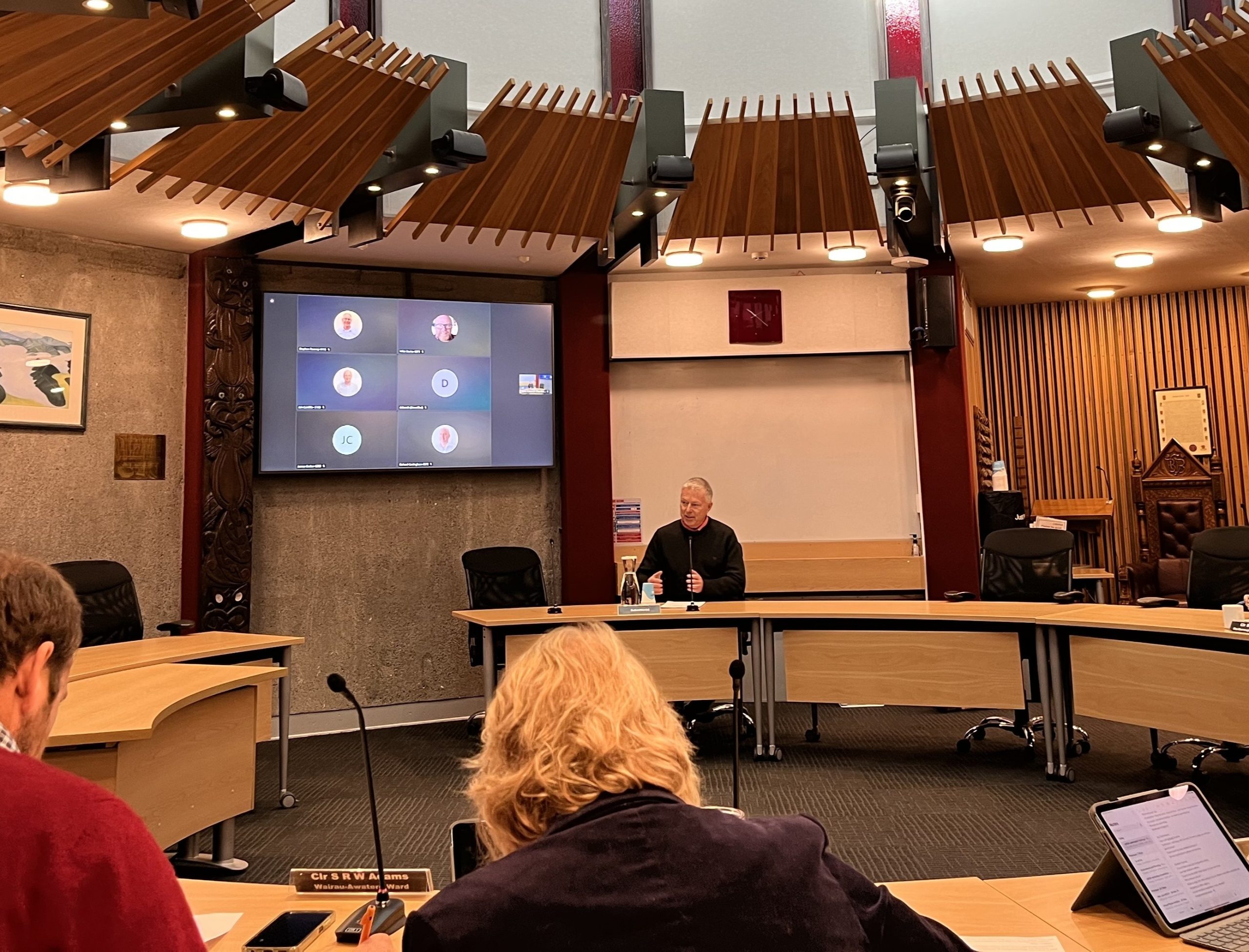Marlborough votes to establish separate water organisation


Submitter Brendan Kearney speaks against the establishment of a separate water services organisation at a submissions hearing in June. Photo: Kira Carrington/LDR)
Kira Carrington/Local Democracy Reporter
The Marlborough District Council has voted to establish a separate organisation to deliver water services in the region.
The decision to form a Water Services Organisation (WSO) was passed by eight votes to five at an extraordinary council meeting on Monday.
The Government’s Local Water Done Well policy required councils to come up with a financially sustainable water service delivery plan by September 3.
Mayor Nadine Taylor said it was an incredibly important decision for the region.
“We have decided to take a once-in-a-generation opportunity to do things differently. To build better three waters infrastructure and provide greater intergenerational equity, spreading the costs over the long term,” Taylor said.
“By setting up a new, water-focused organisation, it will be easier to sustainably deliver efficiencies and savings for residents on council’s drinking and wastewater supplies.”
During consultation with the Marlborough community, a slim majority of the roughly 45 submissions wanted a water delivery unit to stay within the council.
And some councillors agreed. Defeated councillors Brian Dawson, Deborah Dalliessi, Allanah Burgess and Sally Arbuckle all said there was not enough information to convince them that a separate water services organisation could deliver services better than the council’s in-house unit.
The Marlborough District Council was in the minority for its preference of a standalone organisation, although not all councils had voted on it yet.
Of New Zealand’s 65 territorial authorities, only three have preferred a standalone WSO; Selwyn, Queenstown Lakes, and Marlborough.
Nearly 68%, or 44 councils, preferred a multi-council organisation, joining up with neighbouring districts to deliver water services. The remaining 18 preferred to keep water services in-house.
A WSO joining Tasman and Nelson services was briefly floated, but was shelved after Nelson mayor Nick Smith ruled out collaboration on water without a full Nelson-Tasman council amalgamation. Nelson and Tasman both eventually voted to keep their water services in-house, leaving Marlborough without a neighbour to join with.
Taylor said having a separate organisation focused solely on Marlborough’s water would keep the service in the hands of the experts who knew it best.
“The new WSO will have a singular focus on the delivery of water infrastructure and be better positioned to attract the specialist staff we will need in the future,” Taylor said.
Removing water assets from the council books would free up resources to focus on other services, while allowing the new WSO to borrow against those assets at a lower cost than the council could.
“Costs will be spread over a longer period of time through borrowing, leading to lower water charges when compared to retaining water services internally at council,” she said.
The organisation would be council-owned, the board of directors would be council-appointed, and its direction would be set with a legally binding Statement of Expectations. The governance setup would keep the organisation accountable to Marlburians, the council said.
The council said any profit made from the WSO would be reinvested back into the water network.
By 2034, Marlborough would need $410m of investment in water infrastructure. Nearly all the townships required upgrades to pipelines, pump stations and wells.
“Many of Picton’s and Blenheim’s stormwater assets have an expected life of less than 10 years,” Taylor said.
“In addition we have requests from the community to provide new water reticulation services, for example in Ward, Rarangi and Dry Hills in Blenheim.”
The new organisation would be established on July 1, 2026, and become fully operable by July 1, 2027.
LDR is local body journalism co-funded by RNZ and NZ On Air.
